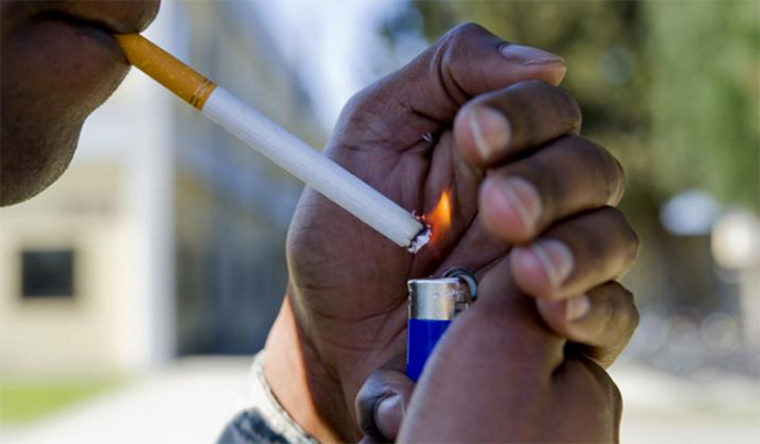The Brown School’s Health Communication Research Laboratory (HCRL) at Washington University in St. Louis has received a five-year, $2.6 million grant from the National Institutes of Health (NIH) and National Cancer Institute to study ways to help low-income smokers quit smoking through specialized quitlines and helping with basic needs.
“Quitting smoking is hard, and it’s even harder if you don’t have resources and support, or if you’re worried about more urgent matters like feeding your family or where you’re going to live next month,” said Matthew Kreuter, the Kahn Family Professor of Public Health, associate dean for public health at the Brown School and senior scientist at the HCRL.

“Low-income Americans smoke more, and quit less, than other groups,” he said. “It’s not that they don’t want to quit. They do. But when they try to quit, they are more likely to use less-effective methods. We need new approaches to quitting that will work for this group,
which has some unique challenges.”
Smoking in the U.S. follows a clear socio-economic gradient, Kreuter said.
“Evidence-based interventions like tobacco quitlines are designed to make effective smoking cessation services available on a population basis to all smokers, regardless of financial means,” he said. “Yet these interventions were not designed specifically for economically vulnerable populations, and therefore don’t address many of the unique challenges faced by low-income smokers. As the demographics of smoking in the U.S. continue to shift, so too must the strategies employed to control smoking — including helping smokers quit.”
The proposed study will test the effects of two innovations to help low-income smokers quit: a specialized quitline and basic needs navigation.
In low-income populations, basic needs such as food, housing, personal safety and money for necessities supersede health needs.
“We have demonstrated that among low-income smokers, those with multiple, unmet basic needs are significantly less likely to contact a quitline referral they received, and less likely to remember even getting the referral,” Kreuter said. “But when basic needs problems are resolved, the odds of calling a quitline increase. Addressing basic needs should therefore increase low-income smokers’ participation in smoking cessation programs.”
However, those programs will have limited effectiveness if they are not made relevant to economically vulnerable populations, he said.
“Thus, proven approaches like quitlines should be more beneficial when they are adapted to the context and life circumstances of the poor,” Kreuter said.
